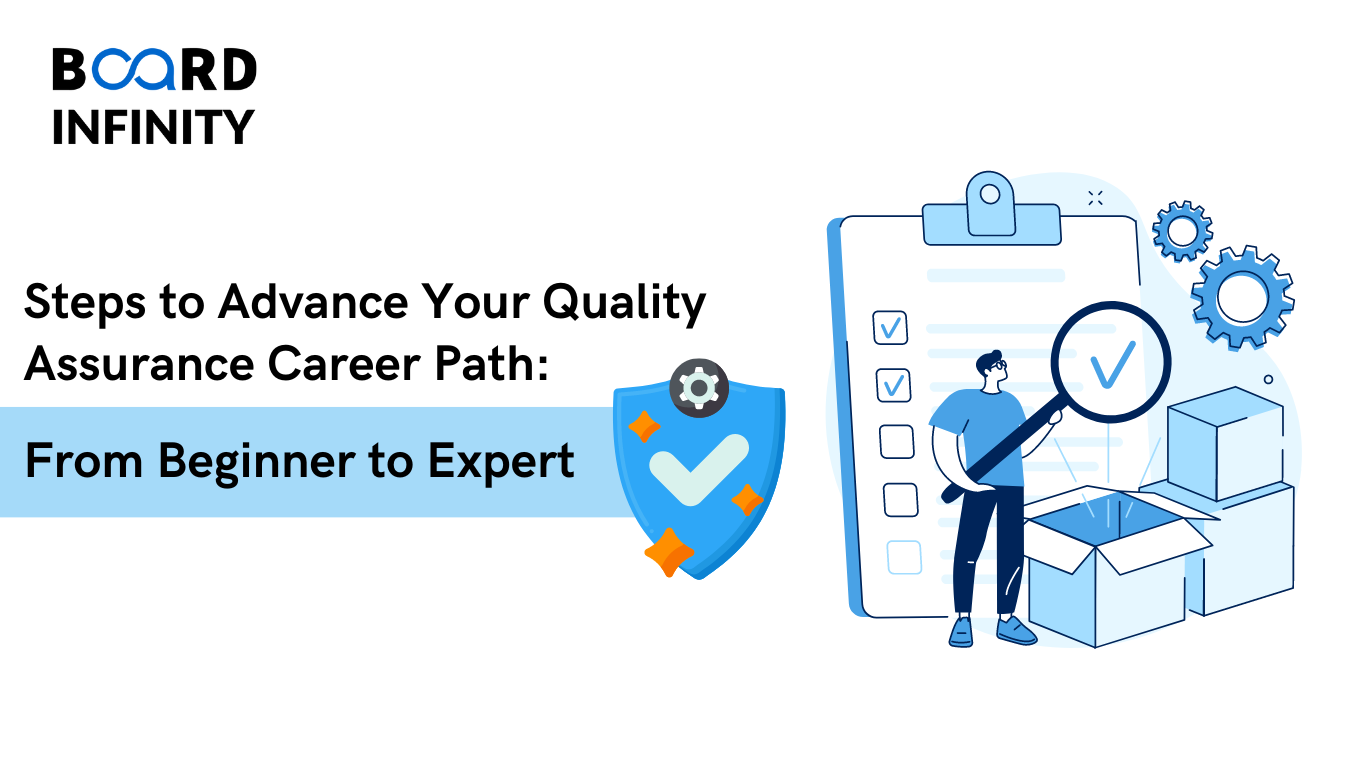
Quality assurance has become an integral part of the tech industry. As products become more globalized and users run into millions and even billions, it's impossible to build a tech product without considering Quality Assurance.
Quality Assurance is the process of ensuring that applications are not only successful but reliable. When applications are created, they exist in the "Lab" sense. This means they have yet to be tested for practicality in the field. QA professionals identify field defects, help developers deliver high-quality tech applications, and improve practicability, usability, and functionality. A Quality Assurance career path could mean better income, remote and on-site jobs, and other benefits. This article will explore how to advance your QA career path.
Steps to Take To Ensure That You Have a Successful Quality Assurance Career Path
1. Understand the roadmap
People often do not create a detailed roadmap or understand the need for a roadmap when planning a career path for QA or any other field. When creating a QA career growth path, you plan to improve skills, networks, and job opportunities. While learning the tools needed for QA, defining your career in terms of pay, network, project preference, and other parameters is essential. People with concrete roadmaps and follow-through usually get to the top of their fields faster than their peers.
2. Networking
Thinking about forging a career in QA? Network with professionals in your field. When you network with other QA professionals, you learn more through their experiences. It's essential to seek out and attend webinars, seminars, and competitions. Let your skills speak volumes on your behalf. When you put yourself out there, you make it easy for many people who may need your services to contact you. In your QA tester career path, you must learn how to network with other people.
3. Practicality over Theoretical Learning
One of the most significant pieces of advice you can be given is to ensure that you create and follow a practical learning method. Quality Assurance can take years to master; however, for every tool or skill you have, there is usually a market of people who would need that specialized skill. You need to consider your financial needs. It's essential to start offering your services early. As you complete each milestone in your QA engineer career path, check to see if companies are hiring for the particular skill you have mastered.
4. Understanding QA Testing Tools
Many QA tools are in the market, each with functionalities and uses. Let's explore these tools:
Test Management Tools: Test management tools such as TestRail, HP ALM (Application Lifecycle Management), and Zephyr facilitate the organization, planning, execution, and reporting of test cases and results.
Automated Testing Tools: We have tools like Appium and Selenum for automated testing. These tools ensure quicker, faster, and thoroughly efficient testing processes. Also, with the tools, you can test applications across several environments.
Performance Testing Tools: We have JMeter and Apache Bench, amongst other tools, for performance testing. These tools access your application's ability to scale; that is, they run your application on more strenuous load conditions. For example, an application that runs smoothly under 10,000 users might not run smoothly under 100,000 users. Performance testing tools create the appearance of a higher load condition to see if and what condition the application crashes.
Security Testing Tools: Security testing tools like OWASP ZAP, Burp Suite, and Acunetix help identify and mitigate security vulnerabilities and threats in software applications, ensuring they adhere to best practices and standards.
Quality Assurance Methodologies
Below is a summary of quality assurance methodologies you should consider when trying to advance your QA career:
Waterfall: Sequential software development with phases like requirements, design, testing, and deployment.
Agile: Excellent for iterative and collaborative development with methods like Scrum and Kanban. Has great adaptability.
DevOps: Integrates development and operations to streamline software lifecycle. DevOps has become the soul of modern development trends.
BDD: Collaborative approach focusing on defining behavior. Translates scenarios into automated tests for clarity and alignment. This phase helps you translate layman's needs and requirements into technical specifications.
Conclusion
Quality Assurance's career planning will put you in a position where you can run automated tests on applications, deliver robust analytical solutions, troubleshoot applications, fix app functionality, and ensure that the application can be easily up-scaled. QA ensures that apps function the same in every environment, regardless of how large the scalability gets. While it’s a great field, you will have to dedicate a lot of time and some money to equip yourself for client needs.
